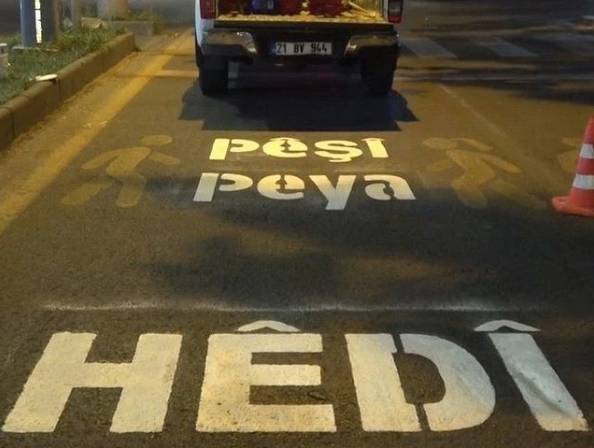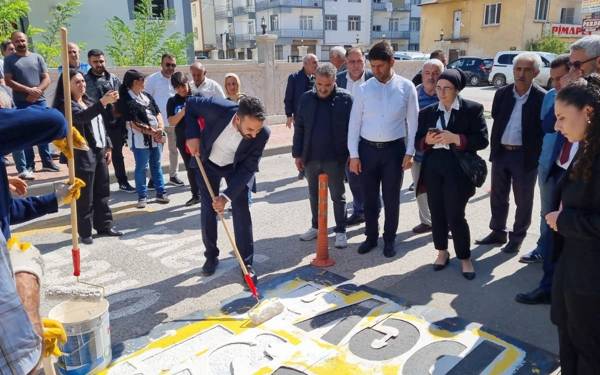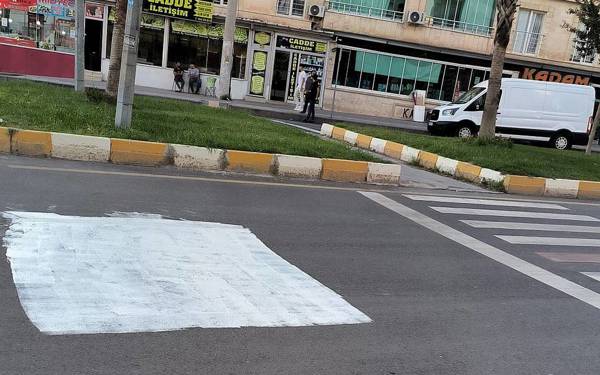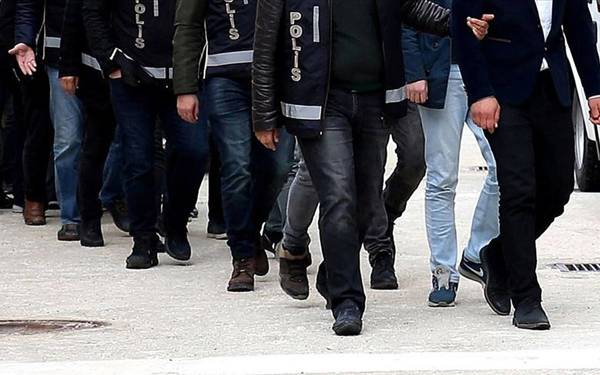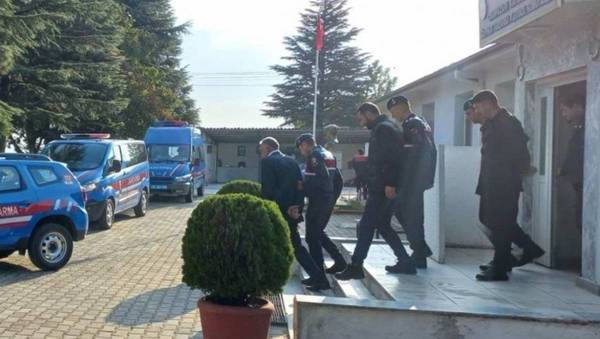Local administrations in the Kurdish-majority provinces of Diyarbakrı and Mardin, which are controlled by the pro-Kurdish Peoples' Democracy and Equality Party (DEM), have restored Kurdish language traffic signs that were previously removed by order of the Interior Ministry.
The signs, bearing the Kurdish phrases ‘Pêşî Peya’ (Pedestrian First) and ‘Hêdî’ (Slow), had been painted over by regional highway authorities in several Kurdish-majority cities run by DEM, including Diyarbakır, Van, Mardin, and Batman.
The decision was met with a backlash from local communities and DEM party officials, who viewed the action as a suppression of Kurdish cultural and linguistic identity. In response, municipalities in Diyarbakır and Mardin have reinstated the signs, asserting their commitment to promoting multilingualism and cultural recognition.
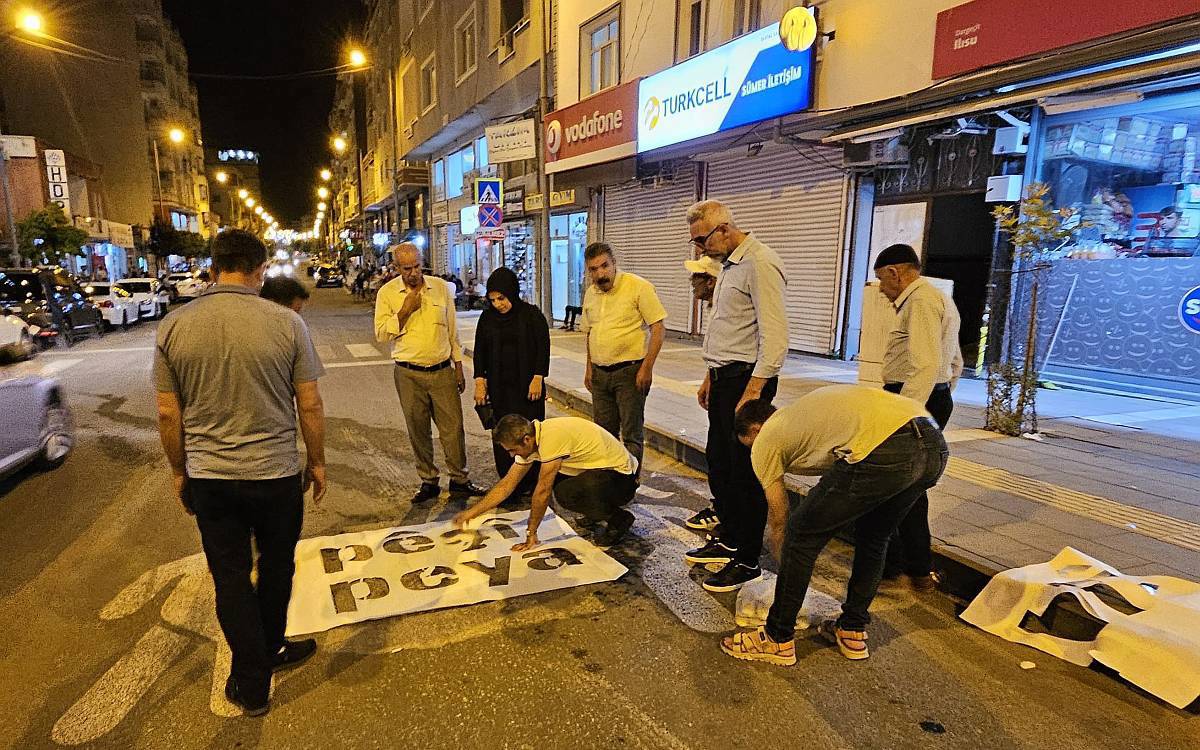
Abdurrahim Aslan, the co-chair of DEM in Mardin’s Dargeçit district, emphasized the importance of Kurdish language presence in public spaces, saying, "If it were a language other than Kurdish, there wouldn't be a problem for the state.”
Aziz Ramazan Akın, the Co-Mayor of Dargeçit, also participated in the repainting of the traffic signs, reflecting the local government's defiance against the removal order.
‘There can’t be brotherhood like this’
The removal of Kurdish language signs was initially justified by local authorities as a measure to comply with national traffic standards. However, many locals see this as part of a broader pattern of cultural suppression. Citizens interviewed by bianet in Yenişehir, Diyarbakır, described the removal as an attack on Kurdish identity. One resident commented, "This is an attack on the Kurdish language," while another stated, "This is intolerance towards Kurds."
A citizen remarked, “There can’t be brotherhood like this,” adding, “We are pleased with these writings, but they are spoiled.”
Another citizen described the erasure of Kurdish warning signs as "intolerance towards Kurds" and commented, "They cannot tolerate Kurds. A person who does not defend or acknowledge Kurd and Kurdistan is not democratic. I am proud of my identity, I am proud of being Kurdish, but I do not recognize the mentality and system that does not recognize me."
Another citizen speaking into our microphone called on civil society organizations, saying, “The erasure of the writings is undemocratic, we do not approve of it, and we do not find it appropriate. We should resort to all legal initiatives, and we will support it.”
‘We are Kurds, we speak Kurdish’
Another citizen stated, “We are Kurds, we speak Kurdish, and the municipality did what was necessary,” saying, “A people thrive on their language, and we want to thrive on our Kurdish. For this, we do not recognize the state's systematic bans, we do not find them right, and we condemn them.”
Besides the removal of Kurdish traffic signs, people also criticized the recent crackdown on weddings and celebrations, where people were detained for dancing to Kurdish music.
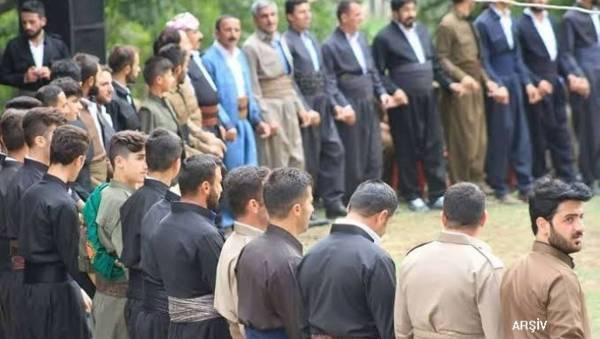
Turkey’s crackdown on Kurdish political movement expands to ‘terrorist weddings’
Citizens, who argued that targeting, detaining, and arresting those who danced the halay to Kurdish songs was unlawful, said, “Every nation has its culture. Halay is one of the cornerstones of the Kurdish people's culture. Like the erasure of Kurdish writings, this is also a political decision.”
A citizen, who said that the pressures on Kurds and the Kurdish language stem from the unresolved Kurdish issue, emphasized "peace" and stated that negotiations with PKK Leader Abdullah Öcalan should resume. (MT/RT/VK)





